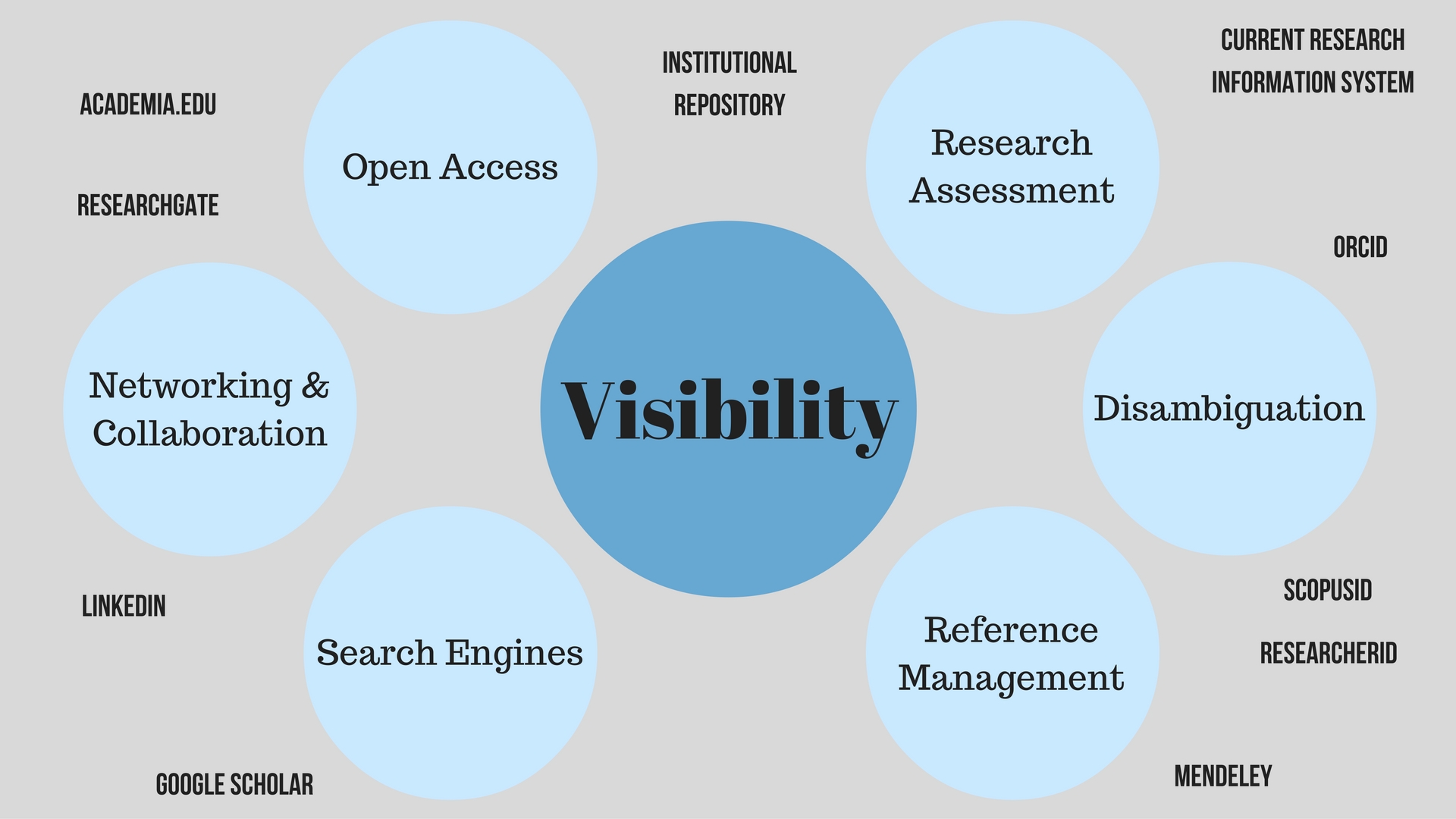Author Profile Systems (like Academia.edu, ResearchGate, ResearcherID and Google Scholar profiles) have grown in number over the last few years. The prevalence of them begs the question as to which one(s) to use, or, should you use any at all! So in this post I’ll try and outline some of the benefits of the systems, their different characteristics, and some particular things you should consider when creating and curating author profile systems.
The benefits
Simply put, the benefits of Author Profile Systems are:
- To make your research known
- To increase chance of citation
- To correct attributions
- To ensure research is counted in research assessment
- To increase chance of new collaboration
- To increase chance of funding
The differing characteristics of the systems
Different functions have created different Author Profile Systems – that might sound awkward and I intend it to be. What I mean is that the primary function of a system (e.g. author disambiguation, open access, reference management or search engines) has created different types of profile systems. So the characteristics of a Google Scholar profile will in part be defined by the original function of Google Scholar, that being a search engine. However, the common feature of all profile systems is the attempt to increase the visibility of the researcher and their work.
A further point to consider is that different Author Profile Systems have different modus operandi which will affect your interaction with them. Some are institutional, others are personal; some commercial, others not for profit; some are open, others are closed (or should I say are a walled garden). The tension between these aspects may determine how you interact (or choose not to interact) with any particular profile. I have written before on the considerations anyone should make when using commercial profile systems like ResearchGate and Academia.edu.
Readymade Systems
Importantly, some profiles already exist, without you having to create them yourself. These include ScopusID (the Elsevier persistent identifier for researchers) and OU People Profile pages. For ScopusID this is important as Scopus attempts to match publications to an existing author profile or create a new author profile – this doesn’t always work, it’s an algorithm. So in Scopus you can get multiple author profiles for the same person and you can get papers associated to a particular author’s profile that weren’t written by them at all. So this profile needs to be curated.
For the OU Profile pages the problem is different, but the solution remains curation. The profile pages are automatically created so if you don’t add any information to them then they are basically empty – a zombie profile, so to speak. And, unfortunately if you own a zombie profile and do a google search on your name and “Open University” that zombie page is going to appear pretty close to the top of a search results page. Which I don’t think is desirable.
So here is a bit of checklist of author profile systems and what they ostensibly can and cannot do. There are a couple of caveats to this checklist. Firstly, functionality changes very quickly on some of these systems so what it can’t do one week it may be able to do the next. Secondly, not all Yes’s are equal, for instance whilst ResearchGate and ORO can provide metrics, it is a qualitatively different type of metrics to that offered by ResearcherID or ScopusID.
What should you do?
Well firstly you should look after the OU People Profile and the ORO publications that populate the publications page. There are external drivers (i.e. REF) to maintain a publication record in ORO and there are significant benefits in making publications Open Access in ORO wherever possible. Add some biography to the People Profile and keep it current.
Secondly, look after any other profile that is readymade. This at the moment might only be a light touch review of your Scopus account – this shouldn’t be onerous, but it is important as it may be affecting author level metrics created in Scopus.
Thirdly, get an ORCID. I’ve written about the benefits of ORCID before. ORCIDs are quickly becoming the de facto standard in scholarly communications because they are open and non-proprietary. They are increasingly expected (if not necessarily required) by publishers and funders.
And, then, I’d suggest, take your pick based on any key criteria you have. If you are an Early Career Researcher attempting to make connections for collaboration and funding then using a commercial platform to help you seems a sensible option. Choose a platform you are comfortable with and where your peers have a presence. However, if you already have those connections you may not need to take the trouble.


